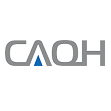Paying the Price When Provider Data is Unclear
In 2018, 57% of Americans experienced a surprise medical bill — that is, an invoice for services they thought were covered by insurance¹. Of that group, 20% reported that these unexpected bills were the result of visiting a doctor who was not part of their insurance network.
To find an in-network practitioner, and his or her office location, hours and contact information, many consumers rely on their health plan’s provider directory. Although much of the information included in these directories is provided to the plan by the providers themselves, the odds of any one directory listing being completely accurate is relatively low.
CMS has been conducting audits of Medicare Advantage online directories since 2016 and, despite concerted efforts by the industry to improve provider directories, the agency has found that still nearly half of all directory information is incorrect.
At the root of this problem is the fact that each health plan collects directory information using different methods and on varying cycles. Providers who participate in several plans face what may seem to be non-stop and inconsistent requests for updates. This can be a nuisance for busy providers and practice administrators — and a burden for the health plans who need to track them down.
Providers and plans share responsibility for keeping the information up-to-date, and everyone pays the price for inaccurate healthcare directories. Providers face costly administrative hassles and are unable to serve patients that can’t find them. Health plans spend millions of dollars contacting providers to update information, and are subject to severe fines for inaccurate directories. And, most importantly, consumers are inconvenienced by inaccurate information and unexpected bills.
This is an area where an industry-wide solution — and centralized repository to help address directory accuracy — can make a big difference. Today, an increasing number of health plans are using CAQH DirectAssure. Leveraging information that more than 1.5 million providers already contribute and update for credentialing and other purposes, DirectAssure uses artificial intelligence to identify and correct incomplete and inaccurate data. The platform then makes the information available to multiple health plans for use in their directories. The result: Fewer hassles for providers, streamlined processes for plans and more accurate directories for everyone.
Even with accurate provider directories, there are some institutional hurdles that make it nearly impossible to guarantee that a patient will see only in-network specialists — particularly in a hospital setting. For example, before going into surgery, many patients don’t think or know to check if their anesthesiologist or radiologist are in-network.
But, fixing provider data is a significant step in the right direction to minimize that risk where possible, and reduce the occurrence of surprise bills.
It’s time for the healthcare industry to come together and get started.
[1] NORC. (2018, August 30) New Survey Reveals 57% of Americans Have Been Surprised by a Medical Bill. Retrieved from: http://www.norc.org/NewsEventsPublications/PressReleases/Pages/new-survey-reveals-57-percent-of-americans-have-been-surprised-by-a-medical-bill.aspx
Mark Pratt is the Senior Vice President of Public Affairs at CAQH.
